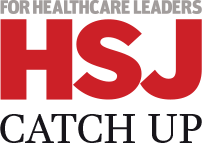Brian Fisher highlights the Coalition for Personalised Care’s work in examining the key conditions that empower communities to set and address their priorities, a tactic which yields numerous benefits
Everyone’s talking about it. Everyone agrees it’s the right thing to do. The NHS Confederation and The King’s Fund are very keen and see it as essential to the survival of the NHS and improvement in the health of the nation.
But hardly anyone actually does it.
This is community strengthening
By this we mean “Enabling communities to identify the priorities, set the agenda, and invite other sectors, statutory or otherwise, to contribute, as appropriate and necessary, to address those priorities. The statutory sector coming to the community table. This is not the same as an integrated care board setting its priorities and then working with communities to implement those priorities.”
We have good evidence that these approaches can improve health, help tackle health inequalities, have an impact on social determinants – and be a good investment. These approaches offer the opportunity to build social capital and improve trust as emphasised by the Khan review.
Despite these benefits, the NHS and Local Authorities have not integrated community strengthening into mainstream methods and resourcing. Currently, the power to design and deliver does not lie with communities.
The Coalition for Personalised Care brought together a group of people and organisations to explore how to create the conditions whereby community strengthening can flourish.
These are the recommendations that would change the landscape of the NHS and local authorities significantly. Let’s implement and do them now.
Place-based budgeting
This would give local authorities and other agencies in England the powers and duty to identify local public service spending, to collaborate and pool budgets to better meet the needs of local populations; to set out Local Public Service Plans and to ensure central government supports the process. It would make it easier for public bodies to invest in a preventive approach whose results may not show up within their own silo.
A new public sector community impact duty
This would require all public services, departments and agencies to identify, understand and engage proactively with communities affected by decisions. This change is designed to shift the internal culture of all public services, normalising participation, deliberation and asset-led approaches.
Community development initiatives at a local level
To facilitate dialogue and shared decision-making needed for community strengthening, and to ensure that it is available everywhere, we need to support community-led development initiatives in each Primary Care Network at the neighbourhood level, closely linked to the work of other partners such as local authorities.
All communities have motivated people keen to address local challenges. They may need resources (financial and otherwise) and help to find ways to act. This is the role of community development. Some places have well-established community development initiatives. The community development worker has a clearly defined role with training models and job descriptions.
Health has a part to play in supporting established or new community-strengthening work. Community development is already recommended as part of NHS England’s Guidance to Integrated Care Systems working with the communities they serve. Health initiatives need to be tailored to the needs and dynamics of each community and take account of existing community-strengthening activities in those communities. Guidance on implementation is here.
Local community development should be led by passionate individuals, who are members of the community, guided by a comprehensive integrated strategy, and funded through local community anchor organisations, which serve the whole spectrum of independent local groups, large and small.
This publication produced by The Health Creation Alliance for C4PC helps to illustrate: what works in community development.
Funding Models
A top slice to form a citizens’ precept
A citizens’ precept is a percentage (suggestions range from 0.1-1 per cent) of funds being reserved from the allocation to traditional health and local authority systems and earmarked to community initiatives; a community investment fund; base budgets; tapping into existing funding streams like Additional Roles Reimbursement Scheme to fund community development workers.
Other options include reallocating existing funds and bringing together various sources of funding through structures like ICSs and Integrated Care Partnerships to support community initiatives. Consider using personal budgets, individually or collectively, to provide a cost-effective means of getting targeted support to people from within their community.
There is a perception that the public prioritises health spending over local government and community initiatives. Finding ways to integrate community funding with core health funding may make it easier to achieve the shift.
Building Evidence
The literature search by The Health Creation Alliance is key, but support for further evidence is needed, particularly on the most effective methods of community strengthening, including cost-saving and long-term return on investment.
Measuring what matters
ICBs and the structures below them should all be accountable through relevant measures that reflect the evidence-based elements of community strengthening. The best candidate is probably measuring social capital, which is linked to health gain, health protection and improving the social determinants. It is already measured by some councils. One simple tool for measuring social capital is here.
Building relationships
NHS and Local Authority leaders need to prioritise time to meet local communities, to understand their health and wellbeing needs, what they are already doing to address those needs and what support is required to ensure those needs are fully met.
Another key action is sharing anonymised NHS and Local Authority planning and needs assessment data with communities. Communities can offer insights for planners.
These recommendations are now endorsed by a wide range of people and organisations. This is a practical programme of action for the government, the NHS, and local authorities.
We ask for dialogue and decisions. Please contact us.
































No comments yet